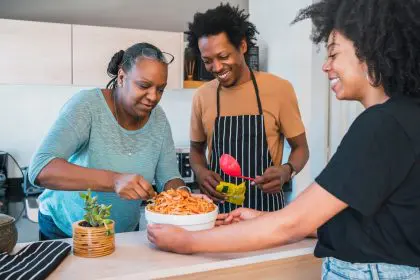Seeing spouses pass away within a short period of each other can be a powerful and emotional experience. It might lead us to believe they died from “broken hearts,” but the reality is more nuanced. While grief undoubtedly plays a role, there are other significant factors influencing why spouses sometimes die near. Let’s delve deeper into the reasons behind this phenomenon.
The Widowhood Effect: A Complex Web of Grief and Health
One primary reason spouses might die close together is the widowhood effect. This phenomenon describes the increased mortality risk experienced by a surviving spouse following their partner’s death. Studies indicate this effect is more potent in men, though it can impact both genders.
Several factors contribute to the widowhood effect:
-
Stress and Grief: Losing a spouse is a profound emotional blow. Grief can trigger the release of stress hormones that weaken the immune system, making individuals more susceptible to illness.
-
Lifestyle Changes: Spouses often rely on each other for practical and emotional support. After a loss, some individuals might neglect healthy habits like maintaining a balanced diet or exercising regularly. This decline in self-care can further impact health.
-
Social Isolation: Loneliness and social isolation are detrimental to well-being. Losing a spouse can lead to withdrawal from social activities, reducing support networks and opportunities for emotional connection. This isolation can negatively affect mental and physical health.
-
Pre-Existing Health Conditions: Sometimes, couples share underlying health concerns. If one spouse succumbs to illness, the other might be already battling similar health issues, increasing their risk of dying soon after.
Shared Risk Factors: A Life Lived Together
Couples who share their lives often share similar lifestyles and environments. These shared factors can contribute to health risks that might lead to deaths in close succession:
-
Diet and Exercise Habits: Couples often develop routines for eating and exercising together. If these habits are unhealthy, both partners are at increased risk of chronic diseases like heart disease or diabetes.
-
Substance Use: Shared habits like smoking or excessive alcohol consumption can significantly elevate the risk of health problems.
-
Socioeconomic Status: Lower socioeconomic status is linked to poorer health outcomes. If a couple faces financial difficulties or lacks access to quality healthcare, it can negatively impact their health trajectories.
-
Environmental Exposures: Couples living in areas with high pollution levels or exposure to environmental toxins are at increased risk of developing health problems.
It’s Not Always About a Broken Heart
While the widowhood effect offers valuable insight, it’s crucial to understand that spouses don’t necessarily die from a broken heart. The observed correlation between losing a spouse and a higher mortality risk doesn’t necessarily indicate causation. Often, pre-existing health conditions, shared lifestyle choices, or environmental factors are more significant contributors to deaths occurring close together.
Building a Long and Healthy Life Together
The good news is that couples can take steps to mitigate risks and live long, healthy lives. Here are some practical tips:
-
Prioritize Healthy Habits: Maintain a balanced diet, incorporate regular exercise into your routine, and prioritize quality sleep.
-
Maintain Social Connections: Nurture social networks beyond the couple. Engage in activities and hobbies that bring joy and connection.
-
Communicate Openly: Discuss health concerns openly and make joint decisions about healthcare.
-
Schedule Regular Checkups: Be sure to see a doctor before feeling unwell. Early detection and management of health issues can significantly improve outcomes.
-
Seek Support During Grief: Losing a spouse is a challenging experience. Don’t hesitate to seek grief counseling or support groups to help cope with the loss.
By taking a proactive approach to health and well-being, couples can strengthen their bond and increase their chances of living long and fulfilling lives together. Remember, while losing a partner is a significant life event, with support and healthy habits, surviving spouses can find strength and continue living well.
This story was created using AI technology.










